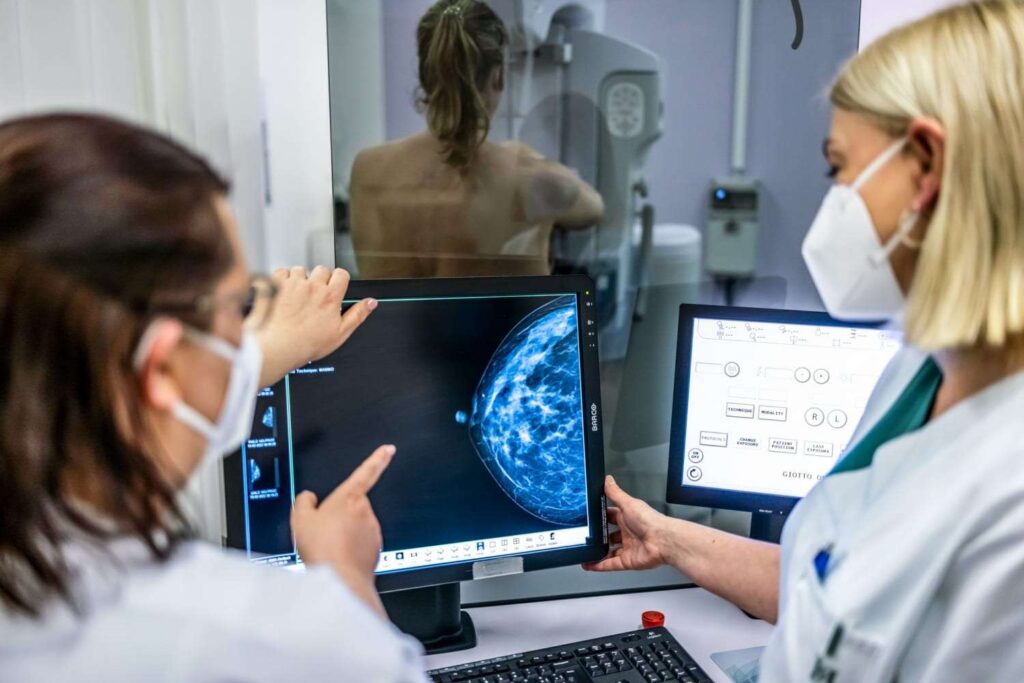There is a new update for women! The US Preventive Services Task Force (USPSTF) now advises starting biennial mammograms at age 40 and continuing until age 74. This new update is quite different from the previous guidelines, which recommended starting routine screenings at 50. Notably, starting routine screenings at 50 did mandate earlier screenings at 40.
The new recommendations update the 2016 guidenlines and align more closely with those of other organizations which already recommend starting mammograms in the 40s. An example of such an organization is the American Cancer Society.
The updated guidelines apply to everyone assigned female at birth who are averagely prone to breast cancer. This includes cisgender women, transgender men, and nonbinary individuals, regardless of family history or breast density.
The USPSTF and Their recent Guidelines
The USPSTF is a body of independent medical experts whose guidelines influence clinical practices and insurance coverage. Notably, the revised mammogram guidelines are not for people with a personal history of breast cancer genetic markers such as BRACA1 or BRACA2.

ALSO READ: Biden Capitalizes on Trump’s Vulnerability on Women’s Reproductive Rights
Additionally, the guidelines do not concern those with a history of high-dose radiation therapy to the chest or high-risk breast lesions. Experts advise that these patients should continue with their doctor’s recommendations or consult their physician for personalized advice.
USPSTF Chair Dr. Wanda Nicholson noted that the new recommendation was birthed given the latest scientific suggestions. The science clearly suggests that starting at age 40 and getting a mammogram every other year until 74 can lessen deaths due to breast cancer.
Dr. Nicholson is a professor and a senior associate dean at George Washington University’s Milken Institute School of Public Health. Early detection through screening is crucial. It allows for the diagnosis of breast cancer before it spreads, thereby reducing the death rate.
Breast cancer is the second most common cancer in women in the United States, after skin cancer. Additionally, it is the second-leading cause of cancer death after lung cancer. Dr. Nicholson said the new strategy could save up to 20% more lives.
Annual vs. Biennial Screening Debate
Despite the efficacy of mammography in detecting breast cancer, the new recommendation to screen every other year has faced criticism. The American Cancer Society says that approximately 1 in 8 women develop invasive breast cancer in their lifetime, making regular screening crucial.
ALSO READ: Legal Trouble for American Couple Over Ammo Possession in Turks and Caicos
Critics argue that annual screenings provide more significant benefits. Dr. Wendie Berg stated that annual screenings significantly reduce late-stage disease and deaths. Moreover, there are huge gains in years of life saved, comapred to biennial screening.
Given these advantages, Dr. Berg finds it surprising that the USPSTF opts for biennial screening. She particularly emphasized the importance of annual screenings for premenopausal women and women in racial and ethnic minority groups.
Aside from all these, there are looming concerns about the USPSTF’s blanket recommendations for people at average risk. This includes those with a family history of dense breasts or breast cancer. Molly Guthrie, vice president of policy and advocacy at Susan G. Komen, suggested that a more tailored approach could be better.
What Are the Considerations for Dense Breast Tissue and High-Risk Groups?
According to the FDA, about half of women over age 40 in the United States have dense breast tissue. In 2023, the FDA updated mammography regulations to ensure all screening facilities notify patients about their breast density in their results.

Molly Guthrie was concerned about the USPSTF’s approach, saying she was surprised to see how the panel broke out their intended audiences. Moreover, their approach doesn’t reflect what is standard regarding people with a high risk of breast cancer. As it stands, Guthrie fears this could cause confusion about appropriate screening practices.
Experts suggest that those with a direct family of breast cancer or dense breast tissue should have other screening recommendations due to their higher risk of developing breast cancer. Guthrie advises that women discuss their personal and family medical history with their doctors to determine the best screening strategy for their individual circumstances.
You Might Also Like:
Chrisean Rock’s Viral Response to Son’s Health Speculation Shuts Down Social Media
“Jersey Shore” Star Vinny Guadagnino Reveals He “Almost Exclusively” Dates Black Women
Jonathan Majors and Meagan Good Share a Steamy Kiss on California Beach
Sam’s Club Revolutionizes Shopping Experience with AI-Powered Carts
Legal Trouble for American Couple Over Ammo Possession in Turks and Caicos
